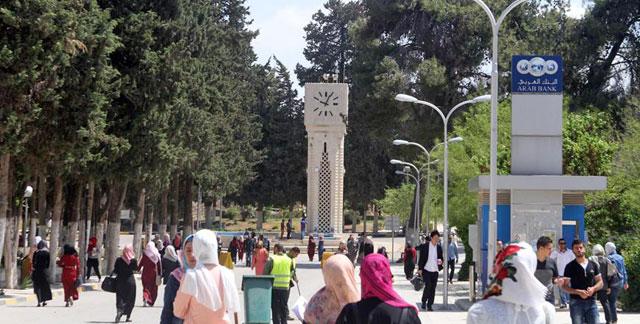You are here
ICT, life skills a ‘must’ for fresh graduates’ employment prospects, experts say
By Rayya Al Muheisen - May 08,2023 - Last updated at May 08,2023

Representative image (Photo courtesy of unsplash)
AMMAN — Higher Educational institutions can help reduce high unemployment rates among fresh graduates and boost the competitiveness of local labour force by equipping students with “practical and advanced” Information Computer and Technology (ICT) skills, experts suggest.
Technology seems to be advancing faster than the four-year degree structure, which may not give fresh graduates the skills they need to remain competitive in the fast-paced labour market, labour expert Ahmad Awad told The Jordan Time.
“Students today must become lifelong learners,” Awad said, adding that obtaining basic ICT skills, as well as “soft skills”, are a “must” for graduates aiming for upward mobility in their career path.
“Universities need to offer undergraduates modern, advanced and practical ICT skills, as well as communication and problem-solving skills to make an impact and focus on teaching relevant, tangible and required skills for the labour market,” Awad said.
Students have to be self-learners and acquire skills through extensive research, persistence and commitment, he added.
Awad posited that the decline in labour force participation may be linked to prospective job candidates’ relative lack of market-demanded ICT and life skills.
Spokesperson for the Ministry of Higher Education and Scientific Research, Muhannad Khatib, told The Jordan Times that the ministry has advised all universities to update their curricula and add ICT and life skills as graduation requirements for students of all majors.
“The ministry believes that life skills and ICT skills are crucial for fresh graduates; obtaining them is extremely necessary for fresh graduate’s competitiveness in the labour market,” Khatib added.
Mohmmad Neimat, a marketing student at a Jordanian university, told The Jordan Times that the university offers “very basic and theoretical” courses in computer skills.
“We have to take two computer-related courses to graduate. However, the courses are very basic, and are not related to labour market requirements,” he said.
Writing resumes, sending formal emails, workplace ethics and many other “major” life skills are not taught at universities, said Neimat.
Entry-level jobs in the marketing field require advanced skills, like data collection, Search Engine Optimisation (SEO), research skills and social media management skills, Neimat said.
“Diverse technical skills are required in just about every field and industry, from IT and business administration to healthcare and education,” human resources expert Dana Qasem told The Jordan Times.
In fact, many entry-level positions across industries require basic technical skills, Qasem added.
Workplace skills, also called soft skills, such as communication and time management, are acquired through experience, while technical skills often require specific education and training to acquire, Qasem said.
Related Articles
The ICT Association of Jordan (int@j) on Tuesday said an agreement signed this week between Jordanian universities and the International Finance Corporation (IFC) will play a key role in reducing unemployment among ICT graduates.
AMMAN — The total number of ICT graduates in the 2020/2021 academic year in Jordan stands at 7,247, a study by the Information and Communica
AMMAN — Around 5,000 ICT students graduate from Jordanian universities annually, but less than 40 per cent of them are able to find jobs in


















